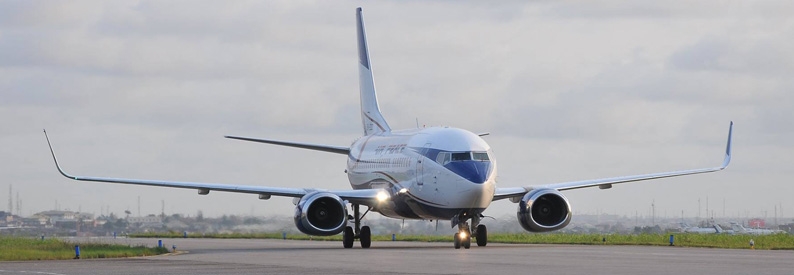Air Peace and FCCPC Clash Over Ticket Pricing

Air Peace (P4), Nigeria’s prominent airline based in Lagos, is embroiled in a heated dispute with the Federal Competition and Consumer Protection Commission (FCCPC). The conflict arose after the airline was compelled to address widespread consumer complaints alleging exploitative ticket pricing and significant fare hikes on various domestic routes. Air Peace counters these allegations by attributing its fare increases to escalating operational costs, including rising fuel prices, insurance premiums, and other financial challenges.
The FCCPC initiated an inquiry on December 3, 2024, in response to numerous consumer grievances. The regulatory body criticized Air Peace for what it termed an “outburst” during the investigation, accusing the airline of employing tactics to obscure the issues and divert attention from the ongoing inquiry into its pricing practices. The commission highlighted incorrect syndicated media reports that falsely claimed the airline was not under investigation, stating these reports “grossly misrepresented” the proceedings of a meeting between FCCPC officials and Air Peace representatives on December 3.
During the meeting, the FCCPC alleged that Air Peace CEO Allan Onyema had threatened to shut down the airline, supposedly to demonstrate that he was benefiting the nation by continuing operations. The commission warned Air Peace to cease obstructing its inquiry, emphasizing that no amount of blackmail or aggressive tactics could halt the thorough investigation. “Let it be noted that no amount of blackmail or cowboy tactics can stop the commission from the ongoing thorough investigation,” the FCCPC stated.
In response to the FCCPC’s actions, Air Peace held a news conference in Lagos on December 6, where the airline’s Chief Operating Officer, Oluwatoyin Olajide, criticized the commission for bypassing the Nigerian Civil Aviation Authority (NCAA) and making public accusations against the airline. Olajide argued that these actions were damaging Air Peace’s reputation and revealed that negative publicity had led to a foreign country denying the airline airport slots, raising concerns about governmental support for local businesses.
Olajide detailed the factors contributing to Air Peace’s ticket pricing, including high operational costs such as soaring fuel prices, which account for 65% of the airline’s expenditures. She also cited rising insurance premiums, high interest rates on loans, unfavorable foreign exchange rates, expensive Aircraft, Crew, Maintenance, and Insurance (ACMI) contracts, and infrastructural limitations at local airports that restrict operational hours. Olajide dismissed the FCCPC’s allegations of exploitative fares as “unfair” and likened them to a “witch hunt,” questioning the legitimacy of the claims and asserting that they harm both Air Peace and Nigeria. She emphasized that the airline is making significant efforts to enhance its global presence despite these challenges.
In parallel developments, Michael Achimugu, the NCAA’s Director of Public Affairs and Consumer Protection, issued a stern warning to airlines failing to comply with ticket refund regulations. Achimugu stated that airlines must adhere to clear NCAA guidelines, which mandate immediate cash refunds for tickets purchased directly in cash and refunds within 14 days for tickets bought via electronic transfer, mobile apps, or internet banking. This statement was prompted by a consumer complaint regarding an outstanding refund from Air Peace, highlighting ongoing concerns about the airline’s compliance with refund policies.
The Airlines Association of Southern Africa (AASA) has also voiced its concerns regarding the FCCPC’s handling of the situation. AASA urged ACSA to expedite the installation of a backup bypass line, a part of the fuel supply resilience plan initiated after a similar fuel system failure in December 2022. The association emphasized the need for robust infrastructure and effective contingency measures to prevent future disruptions.
As the dispute between Air Peace and the FCCPC intensifies, the outcome of the inquiry remains uncertain. The situation underscores the critical importance of maintaining reliable and efficient aviation infrastructure, especially during peak travel seasons. Both the airline and the regulatory body are under pressure to resolve the issues promptly to restore consumer confidence and ensure the stability of Nigeria’s aviation sector.
In conclusion, the clash between Air Peace and the FCCPC highlights significant challenges in Nigeria’s aviation industry, particularly concerning ticket pricing and operational reliability. As both parties navigate this conflict, the resolution will have far-reaching implications for consumer protection, regulatory oversight, and the overall health of the aviation market in the region.
Related News : https://suspicious-zhukovsky.67-21-117-18.plesk.page/?s=Air+Peace
Sources: AirGuide Business airguide.info, bing.com, ch-aviation.com
